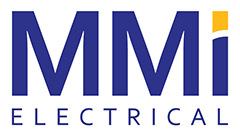How to Safely Charge Your Electric Vehicle in Alberta
As electric vehicles (EVs) become more popular in Canada, it's crucial to know how to charge them safely. Proper charging not only protects your vehicle but also ensures the safety of your home and loved ones. Here's what you need to know about safely charging your EV and setting up a home charging station.
Understanding EV Chargers
In Canada, you have three main types of EV chargers to choose from:
Level 1 Chargers
Level 1 chargers are the slowest option, providing 3–8 kilometres of range per hour. They use a standard 120-volt outlet, making them the simplest and least expensive option. While they’re convenient for occasional charging, they may not meet your needs if you drive frequently or require quicker charging times.
Level 2 Chargers
Level 2 chargers offer a faster charging rate of approximately 30–50 kilometres per hour. They use a 240-volt outlet, which is common in many homes and public charging stations. This type is ideal for daily use and is often preferred for home installations.
Level 3 Chargers (DC Fast Chargers)
Level 3 chargers, also known as DC Fast Chargers, are the fastest option available. They can deliver up to 320 kilometres of range per hour. However, not all EVs are compatible with these chargers, and they are typically found only at public charging stations due to their high power requirements.
Setting Up a Home Charging Station
While public charging stations are handy for when you're out and about, setting up a home charging station can be more convenient and cost-effective. Here’s how to get started:
Choose the Right Charger
For home use, Level 1 and Level 2 chargers are your best options. Level 3 chargers are generally unsuitable for residential setups due to their high power demands. If your EV came with a Level 1 charger, you can use a standard 120-volt outlet, which may be free or low-cost. If you prefer faster charging, a Level 2 charger will require a larger investment and a dedicated 240-volt outlet.
Select the Best Location
Decide where you want to install your charging station. It can be set up indoors, such as in a garage, or outdoors, provided it is protected from the elements. For outdoor installations, consider adding a carport or awning to shield the equipment from weather conditions.
Install Quality Equipment
The safety of your home and vehicle depends on using reliable equipment and proper installation. It’s essential to choose high-quality products from reputable suppliers. To ensure correct installation, contact a Master Electrician. At MMi Electrical, our experienced Master Electricians can help you select the right equipment and install it safely and efficiently.
Safe Charging Practices
Follow these tips to keep your EV charging process safe:
Unplug When Done: Always unplug your EV once charging is complete. Leaving it plugged in unnecessarily can pose safety risks and waste energy.
Use Charging Apps: Smartphone apps can monitor your vehicle’s charge status, helping you know when to unplug.
Consider Weather Conditions: Extreme temperatures, especially cold weather common in Alberta, can affect charging times. Plan ahead and account for longer charging durations in colder weather.
Traveling with Your EV
Before embarking on a trip with your EV, plan your route and locate charging stations along the way. For local travel in St. Albert, there are plenty of public charging stations available. Make sure to understand your vehicle’s range and plan your stops accordingly to avoid running out of charge.
Hire a Master Electrician in St. Albert
Ready to install a home charging station? Trust MMi Electrical for expert installation and top-notch service. Our Master Electricians are here to help you set up a safe and efficient home charging solution. Contact us today to get started!
Related Articles
Follow Us on Social Media
Stay updated with our latest news and tips by following us on Facebook and Instagram.
